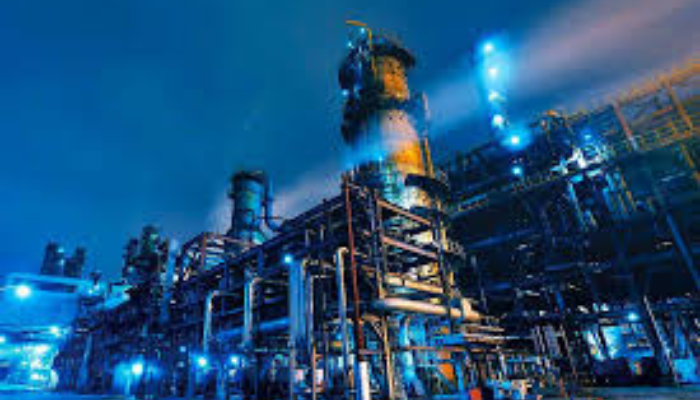China continues to expand its role in Africa’s energy sector, particularly in oil and gas exploration and production. This expansion is driven by China’s need to secure energy resources and advance its Belt and Road Initiative. The upcoming African Energy Chamber (AEC) investor forum in Shanghai will highlight new investment opportunities ahead of African Energy Week 2025 in Cape Town.
Chinese state-owned companies are playing a major role in oil and gas projects across the continent. China National Offshore Oil Corporation (CNOOC) is leading developments in Nigeria’s Egina field and the Akpo West field. China National Petroleum Corporation (CNPC) has committed $400 million to crude supply deals in Niger and is constructing a 1,980-km pipeline linking the Agadem Rift Basin to Benin. Dar Petroleum Operating Co., which includes CNPC and Sinopec as major shareholders, has resumed oil production in South Sudan after nearly a year-long suspension.
Read also: ExxonMobil highlights $20M local content investment at Mozambique roundtable
Sinopec has expanded its operations in Algeria through an agreement with Sonatrach, focusing on the Hassi Berkane Nord exploration zone. In Egypt, United Energy Group has acquired Apex International Energy’s Western Desert portfolio, increasing production by 22,000 barrels per day across five concessions.
China’s role in Gas and infrastructure projects
In the Republic of Congo, Chinese firm Wing Wah is leading the Banga Kayo gas monetisation project, converting flared gas into LNG, butane, and propane. CNOOC is advancing Uganda’s Lake Albert project, with first oil expected from the Kingfisher field in 2025. In Mozambique, CNPC is a partner in the $30 billion Rovuma LNG project, with a final investment decision expected in 2026. CNOOC has also secured exploration agreements for offshore blocks in Mozambique’s Save and Angoche regions. In Gabon, CNOOC has started drilling the Tigre-1 probe, marking its first deep-water exploration in the country in over five years.
China’s involvement in Africa’s energy infrastructure extends beyond oil and gas. In Angola, China National Chemical Engineering Co. secured the engineering, procurement, and construction (EPC) contract for the $6 billion Lobito Refinery. China Engineering and Machinery Corp. has been awarded a contract to build a 350 MW gas power plant in Nigeria. CNPC and the South Sudanese government are discussing plans for a new pipeline through Djibouti and Ethiopia, which would improve crude export capacity. China is also financing the $5 billion East African Crude Oil Pipeline, a project aimed at facilitating Uganda’s oil exports.
Read also: Key takeaways from CMAG’s investment dialogue at Mining Indaba
Renewable energy and China’s commitment to sustainability
China is also investing in Africa’s renewable energy sector. Companies such as China General Nuclear Power Group (CGN), JinkoSolar, and China Energy Engineering Group are funding wind, solar, nuclear, and hydropower projects across the continent. These investments align with China’s broader climate goals, including carbon neutrality by 2060, and support Africa’s transition to cleaner energy sources.
China’s growing role in Africa’s energy sector reflects a long-term commitment to regional development. Its investments in oil, gas, and renewable energy are shaping Africa’s energy landscape and enhancing regional energy security.
Read also: 58% of Africans fear cybercrime as AI threats rise, survey finds
Upcoming energy forums to strengthen China-Africa partnerships
To facilitate further investment and collaboration, the AEC will host the Invest in African Energies forum in Shanghai on 13 March 2025. The event aims to strengthen China-Africa energy relations and create opportunities for Chinese investors, producers, and suppliers to expand their presence in Africa. The forum will serve as a prelude to African Energy Week 2025 in Cape Town, where discussions will focus on how China’s increasing investment in Africa’s energy sector can drive future development and support Africa’s energy transition.
“China’s expanding role in Africa’s energy sector is not only reshaping regional markets, but also creating vital opportunities for investment, infrastructure development and long-term energy security. As we prepare for the Invest in African Energies investor forum in Shanghai and African Energy Week 2025 in Cape Town, we look forward to strengthening partnerships that drive sustainable growth across both traditional and renewable energy industries,” said Leoncio Amada Nze Nlang, CEMAC Executive President at the AEC.










